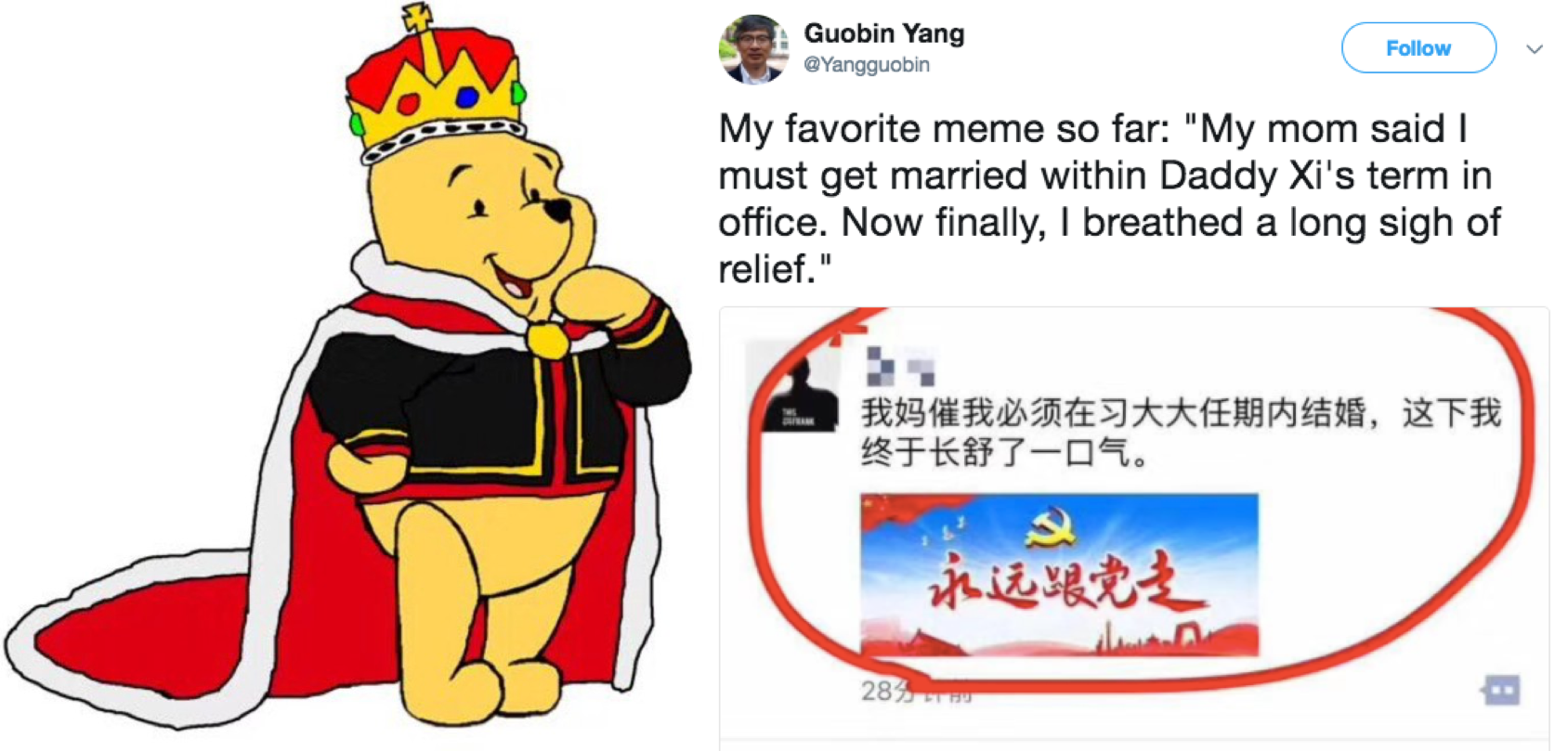China's President Xi Jinping could be president for a long, long time.
China announced on Feb. 25 that its two-term limit on the office of the president will be scrapped, paving the way for Xi to stick around as president after 2030.
China's internet reacted immediately.
In a country where internet censorship and surveillance are the norm, you can't help but hand it to the Chinese people for their creativity in coming up with innovative ways to subtly express their dissent.
Here are some of them.
Chinese internet gets creative
Xi = Winnie the Pooh?
Memes popped up on Chinese social media, with the most popular of them all being none other than Winnie the Pooh.
Or, as anointed by netizens, "Emperor Winnie".
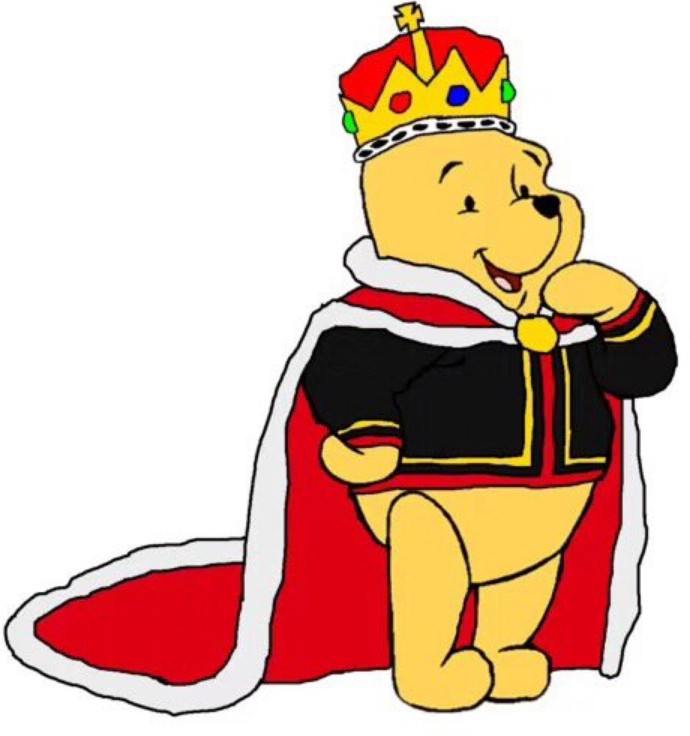
This beloved Disney character of the Hundred Acre Wood was banned on Weibo in July 2017 due to past memes that compared Xi with the adorable, honey-loving bear.
Images of Xi taking an outdoor stroll with the 44th US President Barack Obama went viral after the two reminded Chinese netizens of another set of BFFs.
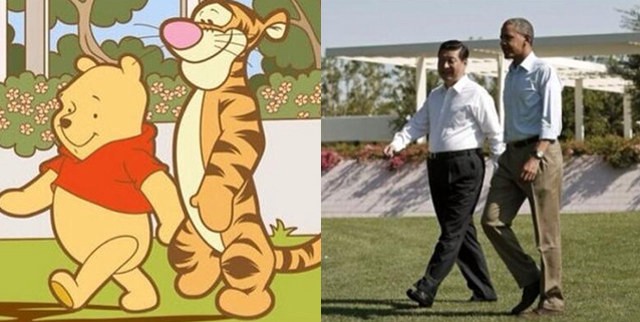
According to Quartz, this screenshot circulated shortly after the announcement.
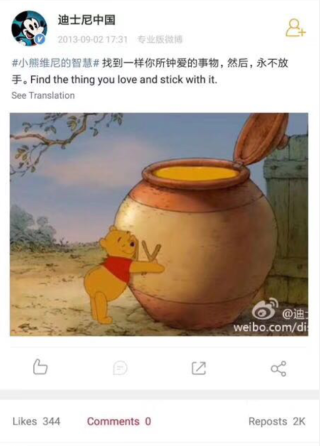
#littlewinnieswisdom Find the thing you love and stick with it.
The memes were quickly censored.
Although some images containing Pooh did make it through the firewall, the popular Pooh memes failed to reach the intended recipient whose WeChat account is based in mainland China.
Chinese searched for "immigration"
A screenshot showing how the number of people searching for the word "immigration" surged on Baidu has also been making the rounds.
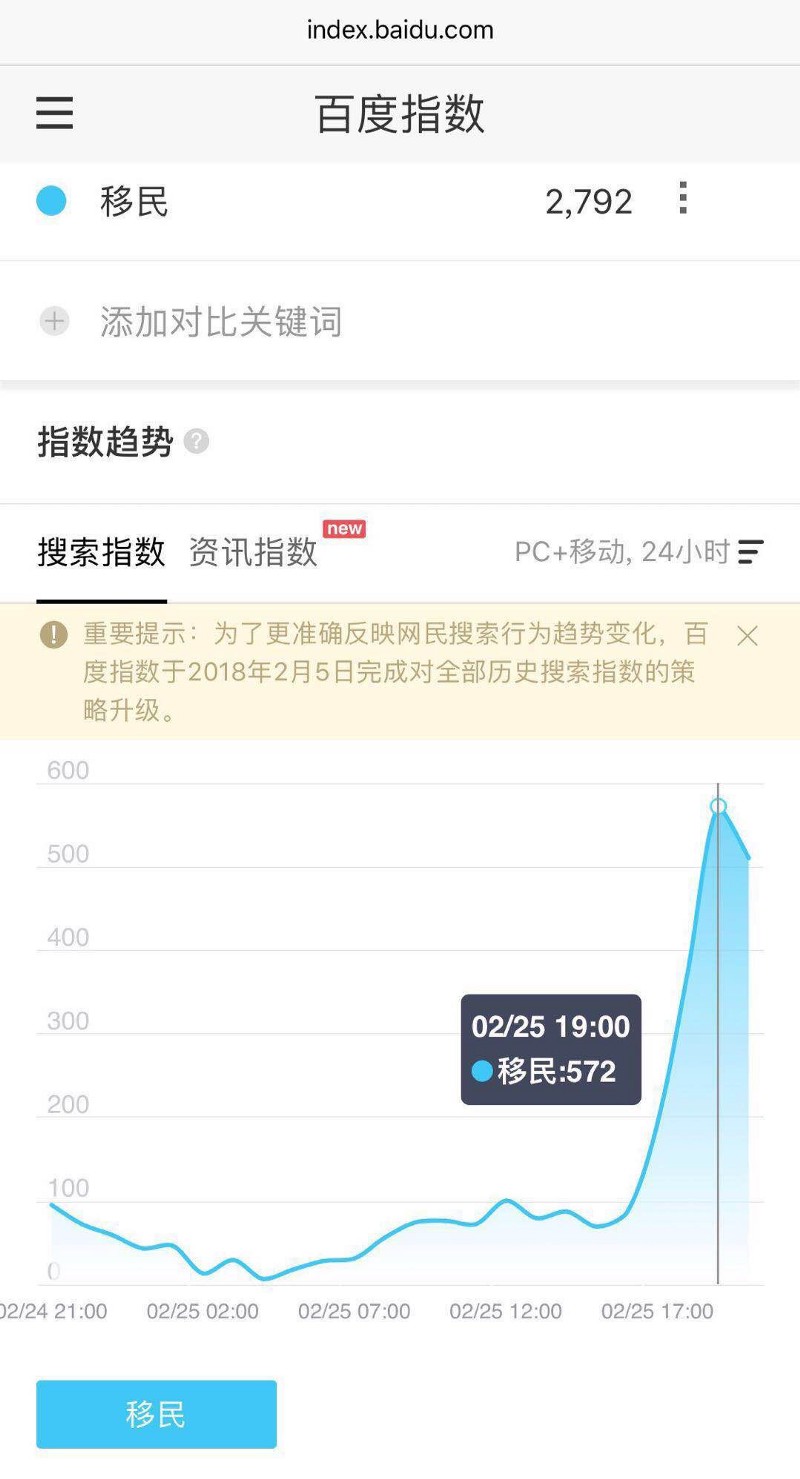
Constitutional change = personal happiness?
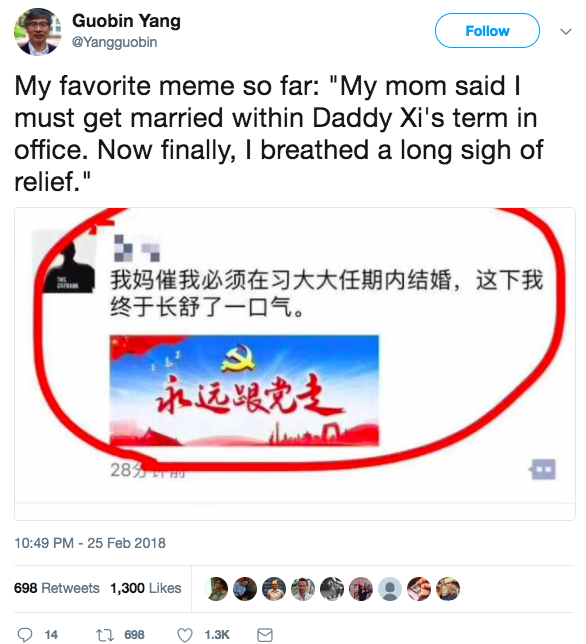 Screenshot via Twitter
Screenshot via Twitter
Two rounds just aren't enough
 Screenshot via Twitter
Screenshot via Twitter
Remembering simpler times
New wave of censorship
New censored phrases
Besides "Winnie the Pooh", "migration" and "emigration", several other Chinese phrases have also suddenly been censored on Weibo, China's popular microblogging website.
According to censorship monitoring websites China Digital Times and Free Weibo, the phrases include:
- I don't agree
- re-election
- election term
- constitution amendment
- constitution rules
- proclaiming oneself an emperor
- long live the emperor
- ascended to the throne
Users trying to make posts or comments containing these phrases have received "violations of laws and regulations" messages.
Notably, the phrase Yuan Shikai was also censored.
This is because the constitutional change was associated with the Qing dynasty general who announced a new imperial dynasty in 1915, declaring himself as emperor.
The prospect of Xi having no term limits reminded many people of China's part dynasties, with emperors able to remain in power until death.
According to the BBC, the comments remaining on Weibo are mostly monosyllabic statements from users that simply say they "like" or "approve" the change.
These comments could likely be posted by workers from the Chinese government -- while not ruling out citizens who go online to post support for the change.
Profile pics frozen
According to Quartz, starting from Feb. 25, neither WeChat nor Weibo users were able to change their profile pictures, statuses, or aliases.
System maintenance was cited as the reason.
This could be a way to prevent subtle dissent.
In November 2017, when Beijing launched a mass eviction of migrant workers out of the city, China's internet resorted to using the phrase "low-end population" in aliases as a form of protest.
While the phrase was first used by the government, Chinese netizens quickly owned it, turning it into a shorthand for prejudice towards migrants and criticism of authorities.
However, as with all other sensitive phrases, they soon found out that the phrase was evicted from cyberspace.
[related_story]
Global Times backs the change
China's English-language state media Global Times has defended the decision, saying that it doesn't mean that "the Chinese president will have a lifelong tenure".
The report also quoted a Communist Party member and academic saying that the amendment was justified as China needs a "stable, strong and consistent leadership" from 2020 to 2035.
If you like what you read, follow us on Facebook, Instagram, Twitter and Telegram to get the latest updates.
